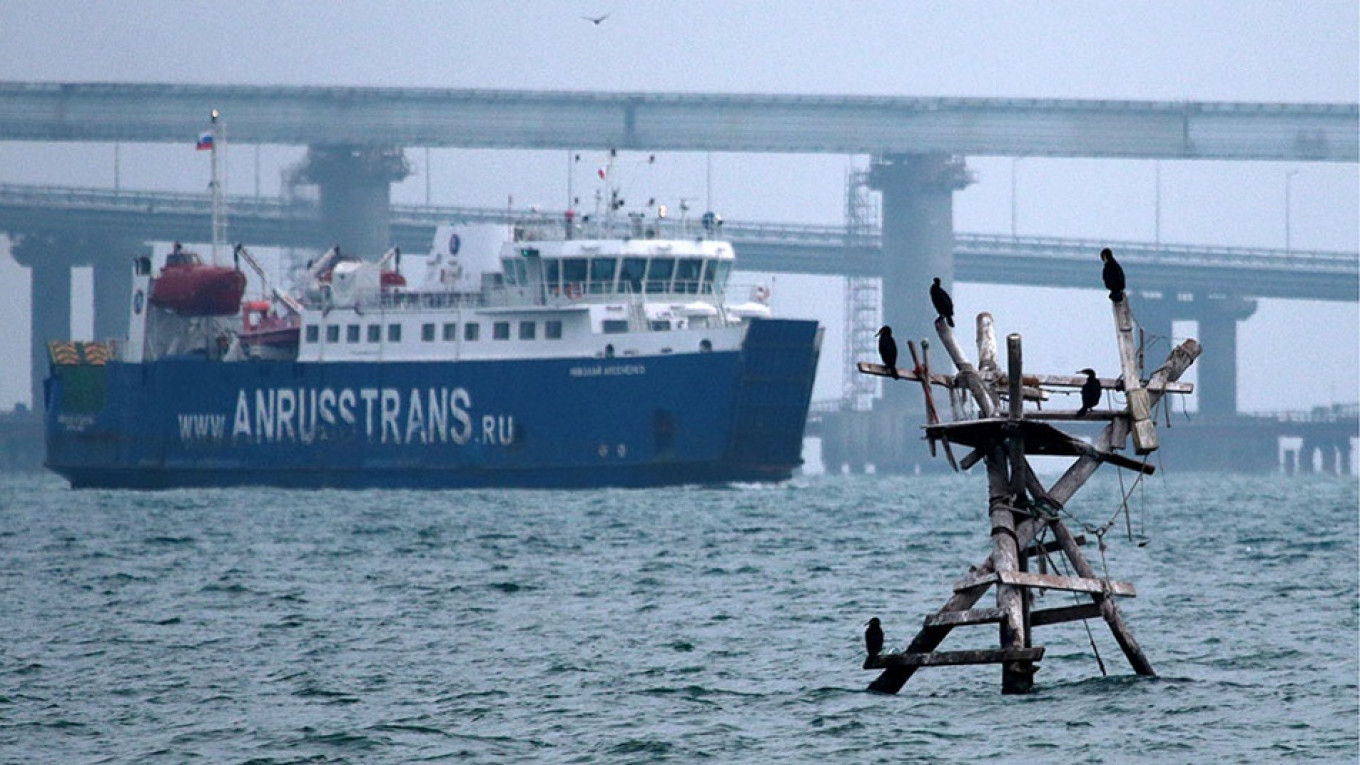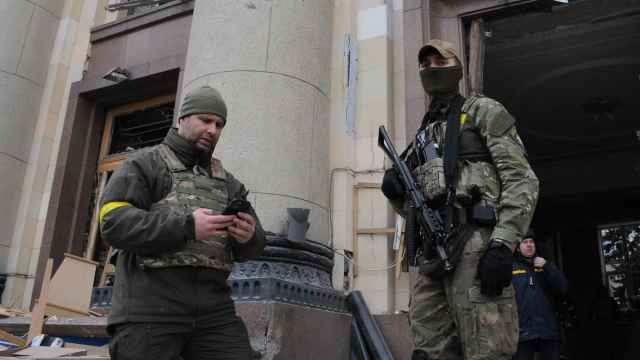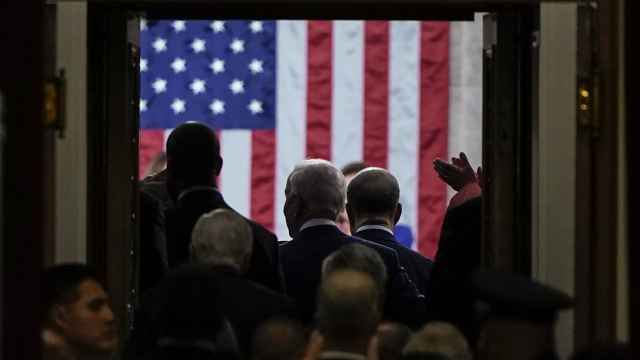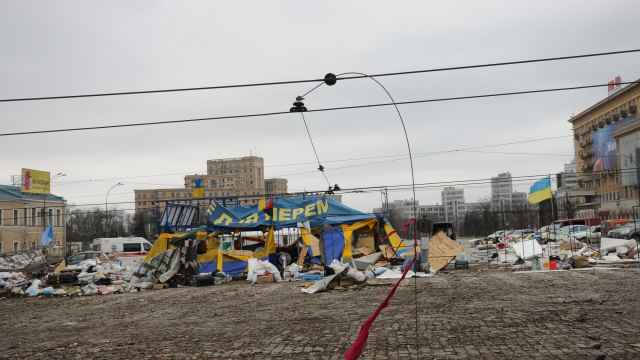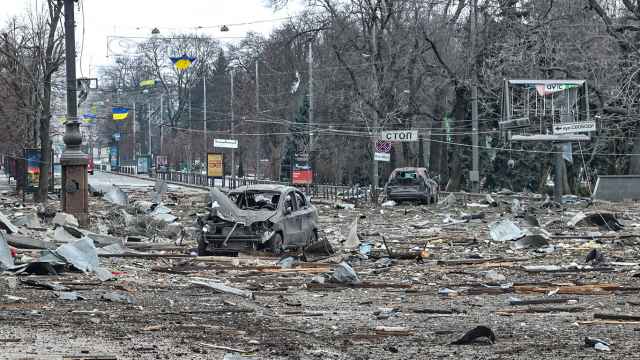This article was updated to include Russia's response.
The Kremlin on Thursday denied a Ukrainian allegation that Russia was restricting shipping near Crimea as part of what Kiev said was a de facto blockade of its ports on the Sea of Azov.
Speaking to reporters on a conference call, Kremlin spokesman Dmitry Peskov said he was unaware of any such problems and said shipping traffic was moving normally through the Russian-controlled Kerch Strait which separates the Black Sea and the Sea of Azov.
Peskov said delays did sometimes occur in the area as a result of bad weather however.
Ukraine's infrastructure minister, Volodymyr Omelyan, earlier on Thursday accused Russia of barring ships from leaving and entering the sea, days after Moscow seized three Ukrainian naval vessels and their crews.
Omelyan said that two Ukrainian Azov Sea ports, Berdyansk and Mariupol, were effectively under blockade by Russia as vessels are being barred from the sea.
Overall, 35 vessels have been prevented from carrying out normal operations and only vessels moving towards Russian ports on the Azov Sea are permitted entry, he said on Facebook.
"The goal is simple — by placing a blockade on Ukrainian ports on the Azov Sea, Russia hopes to drive Ukraine out of our own territory — territory that is ours in accordance with all relevant international laws," he said.
Omelyan said 18 vessels were awaiting entry into the Azov Sea, including four to Berdyansk and 14 to Mariupol. There is also a line of nine vessels to leave the Azov Sea and eight other vessels are standing by near the port berths.
Grain and steel dominates the Azov ports shipments.
Russia seized three Ukrainian navy ships and their crews on Sunday near the Crimean peninsula, which Moscow annexed in 2014, over what it said was their illegal entry into Russian waters — a charge Ukraine strongly rejects.
The United States and the European Union have both imposed sanctions on Russia over its conduct toward Ukraine since 2014, when Moscow seized Crimea after a pro-Russian leader was toppled in Kiev.
Moscow later backed pro-Russian separatists in eastern Ukraine in a conflict in which more than 10,000 people have been killed. Major fighting ended with a 2015 ceasefire but deadly exchanges of fire are still frequent.
A Message from The Moscow Times:
Dear readers,
We are facing unprecedented challenges. Russia's Prosecutor General's Office has designated The Moscow Times as an "undesirable" organization, criminalizing our work and putting our staff at risk of prosecution. This follows our earlier unjust labeling as a "foreign agent."
These actions are direct attempts to silence independent journalism in Russia. The authorities claim our work "discredits the decisions of the Russian leadership." We see things differently: we strive to provide accurate, unbiased reporting on Russia.
We, the journalists of The Moscow Times, refuse to be silenced. But to continue our work, we need your help.
Your support, no matter how small, makes a world of difference. If you can, please support us monthly starting from just $2. It's quick to set up, and every contribution makes a significant impact.
By supporting The Moscow Times, you're defending open, independent journalism in the face of repression. Thank you for standing with us.
Remind me later.


